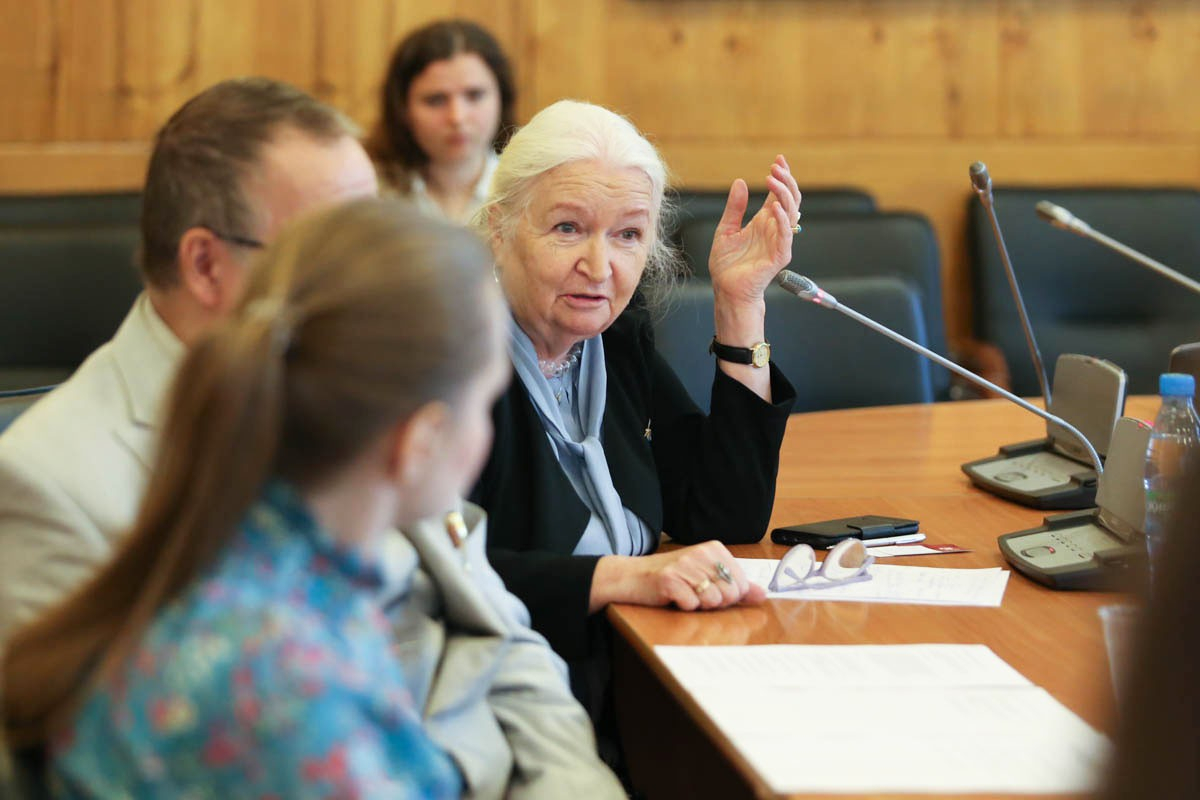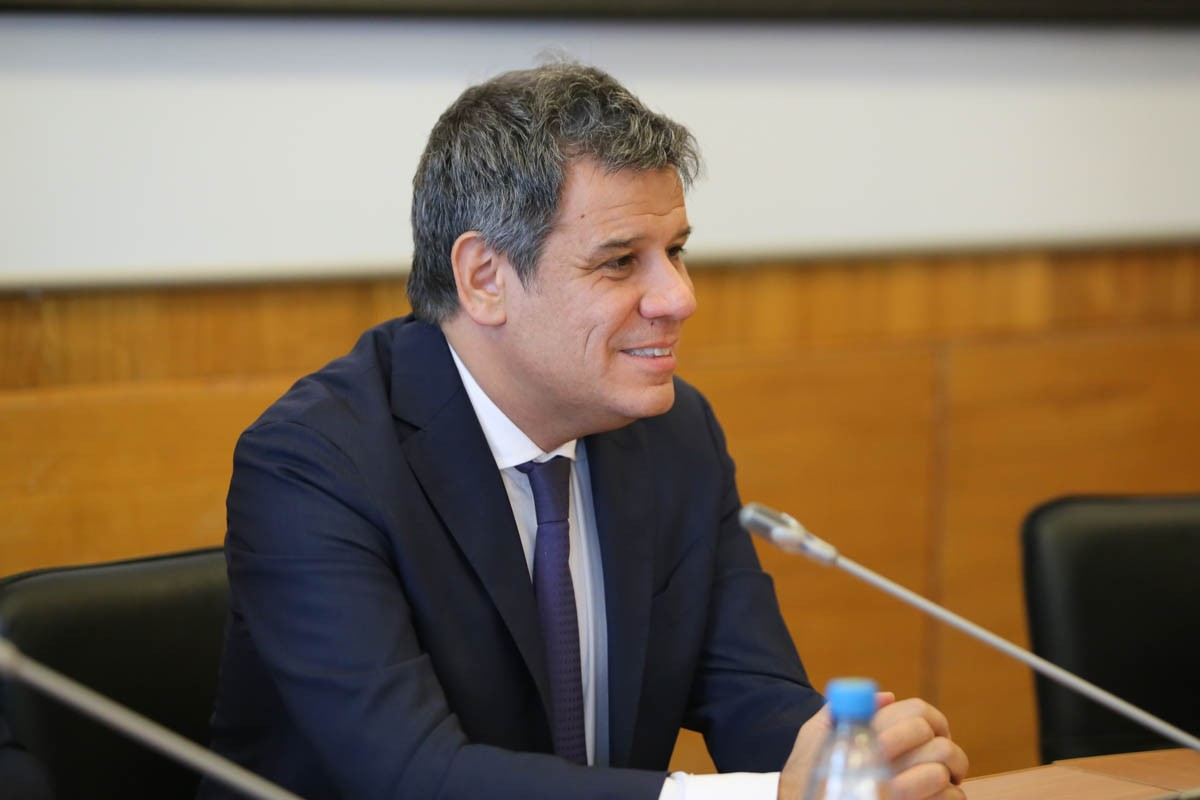The link between neuroscience and state policy has become a subject of discussion at St Petersburg University
An interdisciplinary round table on speech neurobiology has taken place at St Petersburg University. It was attended by leading biologists, medics, psychologists and linguists. Dr Facundo Manes, Rector of the Favaloro University and President of the INECO Foundation for Research in Neuroscience, presented his report at the meeting.
Gaston Fielli, Secretary for Science, Technologies and Innovations of the Embassy of Argentina in Russia, has become an honourable guest of the round table. At the opening of the meeting he spoke about Argentina and the new role that science plays in the life of the country. ‘Even in my native country, if you ask people to name famous Argentinian scientists, very few will be able to do that. Yet, there are five Nobel Prize winners. However, we should not speak only about the past, because now science in Argentina is actively developing. We are running several nuclear research projects, and we are leaders in IT technology in Latin America,’ said Gaston Fuelli. ‘Very often people have little understanding of what scientists do when they work in their laboratories. It is quite strange, considering the fact that science has been changing our lives more than ever: it has been transforming the principles of social organisation and communication. Still, a majority of people are far from understanding the essence of the work and aims of researchers.’
Three Argentinian scientists are Nobel Prize Winners in physiology and medicine – Bernardo Alberto Houssay (1947), Luis Federico Leloir (1970) and Cesar Milstein (1984).
Dr Facundo Manes, Rector of Favaloro University, is a prominent neurobiologist and one of the best-known communicators of scientific knowledge in Latin American countries. In his lectures for students and anyone interested in science he explains brain functioning and how cognitive sciences can be applied in everyday life. At St Petersburg University, Dr Manes presented a report ‘Neuroscience, state policy and dementia’.
Dementia, a decrease in mental abilities caused by changes in the temporal lobes, was the first topic raised at the round table discussion. It is mostly elderly people who are affected by the disease and it is the reason why people see dementia not as a disease, but as part of a natural aging process. This is also a serious problem. Only close relatives may notice behavioural changes. For others, people suffering from dementia might appear to demonstrate usual communicative behaviour, except for one thing: they have difficulties making choices and taking risks.
Man has two systems for decision making – abstract thinking and automatic thinking, which functions 90% of the time. This includes in emergency situations that require quick response. The study of the neurocybernetics of these processes is particularly important today not only because it is a way to fight diseases. Each person acts on the basis of their own understanding of the world, rather than on the basis of objective reality. This is a trap even for those who are supposed to be able to think rationally. For example, politicians might believe themselves and their electorate to be rational, faultless people and do not take into consideration automatic thinking. Therefore, in order to be able to make scientifically substantiated decisions, both political leaders and the electorate should obtain scientific knowledge.
During the expert discussion, the Head of the Department of Pathology of St Petersburg University Leonid Churilov noted that human imperfection and faulty judgements lie in the basis of humanism. Scientists should be careful in giving recommendations to politicians. ‘We are arming them with science while they are pursuing their goals even more skilfully and eliminate imperfections that prevent them from taking total control’, said Leonid Churilov. ‘There is a mechanism of democracy that should help voters elect the best candidate. Science has little to do with it. However, if there is a clever dictator that comes to power, for example, someone like Juan Domingo Peron, would it do any good to society if we provide him with additional means of controlling human behaviour? History is a result of faulty acts of individuals, and it is dangerous to imply anything while believing in your own infallibility.’
Tatiana Chenigovskaya, professor of St Petersburg University, Head of the Department of the Problems of Convergence in Natural Sciences and Humanities and Laboratory for Cognitive Studies, stressed the importance of cross-cultural research. She noted that while conducting cognitive and emotional tests, most researches are still guided by the cultural preconceptions of their own country. This is despite the fact that cultures of different countries have different sets of coordinates, and things that are the same might have different values in different cultures. Dr Manes commended the achievements of the Laboratory for Cognitive Studies and suggested that Russian experts should be included in the INECO Foundation research.
Vsevolod Rosanov, professor of St Petersburg University at the Department of Health Psychology and Deviant Behaviour, spoke about the benefits that neurosciences can bring to the social health system. During the last few years, scientists of St Petersburg University have been working together with their colleagues from Karolinska Institute (Sweden). Their project is to prepare young teachers who would be able to develop study courses for the elderly as a part of life-long education. It is a global task to involve elderly citizens into the education process; due to their age they might lack intellectual activity. Future teachers acquire the knowledge of the principles of neurobiological mechanisms and concepts of psychological health. They are also taught how to work with elderly students. The results and the experience gathered during this research can be applied in various spheres. There are already managers in Russian banks instructing personnel on how to deal with elderly clients taking into consideration their neurocognitive specifics. This is the result of the work of a public organisation whose workers have already been trained as a part of this project. According to Vsevolod Rosanov, the project is a good example to demonstrate the importance of including neurosciences into state policies.



